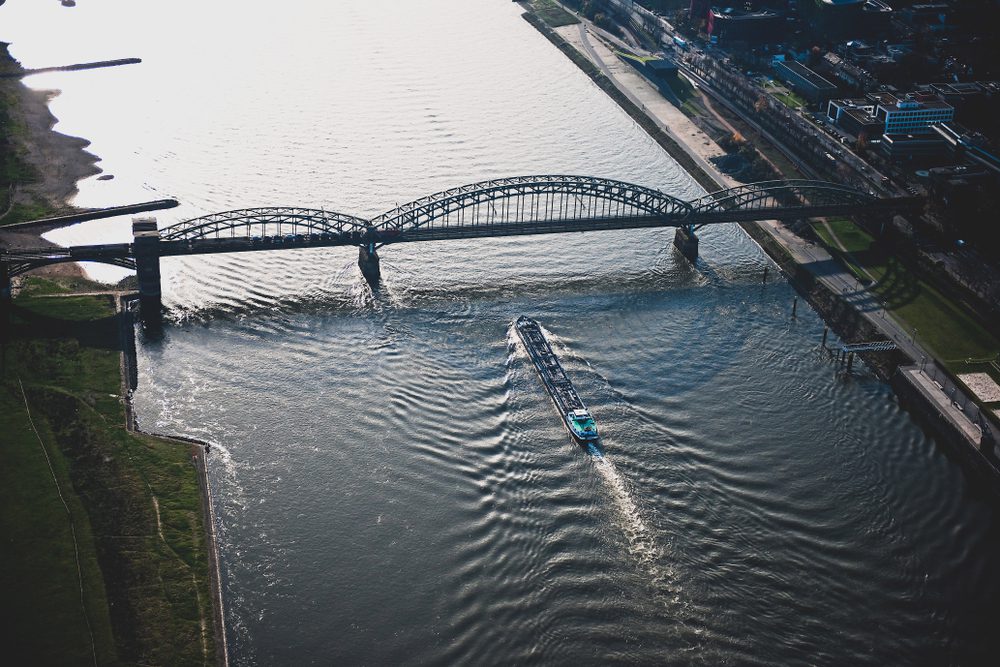Vincenzofoto / Shutterstock
 By Tom Käckenhoff DUISBURG, Germany, Feb 27 (Reuters) – Thyssenkrupp will spend a mid double-digit million euro sum over five years to safeguard against a repeat of last year’s low water crisis on the river Rhine, which hurt commodities flows and pushed up costs, a company official said.
By Tom Käckenhoff DUISBURG, Germany, Feb 27 (Reuters) – Thyssenkrupp will spend a mid double-digit million euro sum over five years to safeguard against a repeat of last year’s low water crisis on the river Rhine, which hurt commodities flows and pushed up costs, a company official said.
Emergency plans for personnel have been reworked, alternative modes of transport and barge modernisations explored, and storage and reception facilities expanded, Thyssenkrupp manager Arnd Koefler told Reuters in an interview.
Force majeure on the Rhine disrupted the delivery of raw materials to Thyssenkrupp’s plants last year after months of hot summer weather and a lack of rainfall dried up rivers, meaning vessels could not sail fully loaded in the shallow waters.
This hampered barge trading in sectors like coal, oil products, chemicals and agricultural products. Companies such as chemicals firm BASF also suffered supply bottlenecks.
“We learned our lesson from the situation, especially as the effects of climate change could increase in the future and low water levels could become more frequent,” the Thyssenkrupp Steel Europe board member said.
The low water period has cost the company a low triple-digit million euro sum to date, he said.
Among the remedies that Thyssenkrupp has come up with is a long-term deal with railway operator Deutsche Bahn, which will take on some 3,000 tonnes of coal transports per day for the steelmaker.
This would allow the company to avoid production cuts of the size seen last autumn, Koefler said.
Thyssenkrupp’s own barge fleet can transport some 60,000 tonnes of iron ore and coal on average per day from Rotterdam to Duisburg, Europe’s biggest steel production site.
But if river levels fall below 1.70 metres, movements have to be reduced. As the situation deteriorated in 2018, its own ships could not run for six weeks, and up to 60 better suited ones were hired.
But the company still lost 200,000 tonnes of production which it could only partly recoup later.
The Duisburg port still offers the advantage of cheap barge transport when conditions are more regular, Koefler said. (Writing by Vera Eckert; editing by Thomas Seythal and Jan Harvey)
(c) Copyright Thomson Reuters 2019.

 Join The Club
Join The Club











